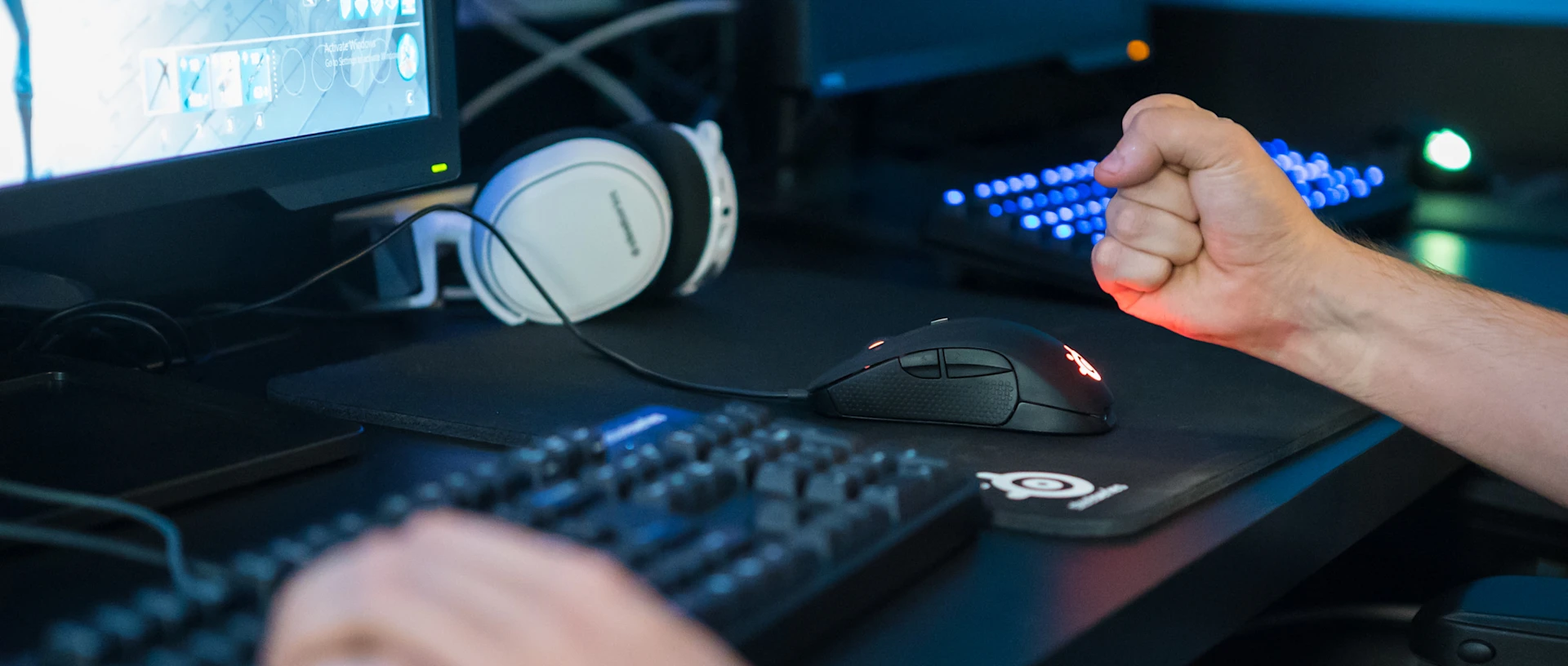
Why Latency Can Destroy You
The Gaming Mouse Sensor Series #2

Public enemy # 1 in gaming isn’t your opponent, it’s latency in your gaming mouse. Latency is the time it takes from the movement of your mouse to the movement on your screen. You don’t have to be SumaiL to know that your mouse must deliver the least possible amount of latency or lag to be effective.
There are 3 main factors that determine the amount of latency in a mouse.

1. Polling rate - So refreshing!
The polling rate, also known as the refresh rate, refers to how often your PC receives movement
data from your mouse. In other words, it’s the response time measured in hertz. For example, 125 Hz means there are 125 reports of data per second and 1000 Hz means there’s 1000 reports of data per second (1 report every millisecond). 1000 Hz is the fastest polling rate today, so don’t be fooled by a marketing label of 2000 Hz. That is just a mouse that sends 2 reports at every millisecond, resulting in the same 1 millisecond interval as 1000 Hz. Science > marketing!
2. Firmware - Written to win
The firmware is the glue that binds all of a mouse’s functions together. When you rely on your gaming mouse to be stable, compatible with all your systems and have low button latency, you are trusting the firmware to be well written. Not all firmware is created equal, and poorly written firmware from inexperienced company results in unstable and unexpected results, compatibility issues and a dreaded latency increase. When looking for a new gaming mouse, always go with the established competitive gaming brands that have been making mice for esports for more than a decade.
3. SROM
The SROM (which stands for, Secure Read Only Memory) is the sensor’s instruction set that can further modify its performance. Not all sensors have an SROM, but the ones that do can be custom-tuned for faster response time and greater accuracy. Hardcore gaming peripheral manufacturers like us are never satisfied, tweaking everything to deliver the ultimate performance products.
Today, the Pixart 3360 is the best performing optical sensor available. You can find it in popular gaming mice across a number of brands, including our own Rival 500 and Rival 700. Some manufacturers have produced versions of the 3360 sensor but unbalancing it for higher CPIs, sacrificing the three key factors described above, and then resulting sub-par performance. When you are searching for a new gaming mouse, don’t focus on inflated CPI numbers, reward yourself with the lowest latency mouse available.


As the authority on optical and laser sensor technology at SteelSeries, Jeff Chang is eager to shine truths on the miseducation and marketing hogwash that has been injected into the gaming mouse market. In this 4-part story called The Sensor Series, Jeff introduces the most important and tarnished aspects of gaming mouse sensors all leading to big news coming later this summer.